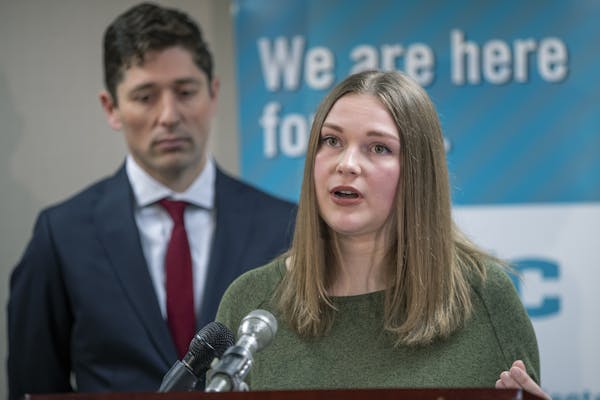Sexual assault survivors told Minneapolis City Council members Wednesday about repeated failures by police to handle their cases. Their experiences ranged from being told that no one could investigate a case, to police ignoring evidence and victims feeling blamed for the rapes.
They were there as police presented new policies and procedures on how they will respond to the crimes. The new approach includes training for all investigators on interviewing techniques meant to elicit better information from victims, while also treating them with empathy.
All officers who could take an initial rape report will be trained to take the victim's well-being into account.
"Going through a sexual assault is going to make anyone feel completely powerless. Going through the investigation made me feel just as powerless," said Melody Walton, who reported being raped three years ago at a downtown Minneapolis hotel.
Minneapolis Deputy Chief Erick Fors acknowledged during the council meeting that police have made mistakes in cases and called the criticism leveled by the assault survivors "justifiable."
"A lot of criticism was due to people who were in command of the unit and how they felt," Fors said, adding that the commanders in question were appointed under different leadership and are no longer with the department.
Mayor Jacob Frey and Police Chief Medaria Arrandondo first announced the new policy earlier this month.
Fors said the sex crimes department has gone from six to eight investigators, and he hopes to get to 10.
Minneapolis police have also begun taking reports from victims who were assaulted in other jurisdictions, Fors said.
The MPD's reforms were prompted by a Star Tribune series last year that documented widespread failings not only in Minneapolis, but throughout Minnesota, regarding how sexual assault cases are investigated and prosecuted.
Some of the women featured in the series spoke Wednesday, including Walton, who described telling the first officer on the scene what happened, "but when I finally got to read the report, he had written down things I had never said."
She also talked about trying to tell her investigator that she was diagnosed with a concussion from the rape.
"She started arguing with me. She said, 'that just sounds like a hangover from when you were drinking,' " Walton told the council.
Another survivor in the series, Catherine Davlin, talked about being raped by a stranger, then trying to call the police when she saw that her stolen credit cards were being used. Two weeks later, her investigator accidentally sent her a photo of a half-naked man that was meant for her boyfriend.
"I felt like I was a low priority and in the process was re-victimized," she said.
Davlin told the council that her support of the new procedures "comes with cautious optimism." She expressed concern that the new policies lack accountability for officers who fail victims.
"I think there needs to be a lot more work," she said.
Council member Phillipe Cunningham asked Fors if there has been training specific to people of color, immigrants and people from the LGBT community.
Not yet, Fors said.
"Initially we wanted to get out a very unified message, something that we felt could be applicable across the board," Fors said.
Afterward, Sarah Super, a rape survivor and advocate, praised the new guidelines. But she said training for minority communities needed to be addressed. She also wants police to do more to hear from survivors about how they felt their cases were handled
"I want there to be some form of feedback," she said.
Brandon Stahl • 612-673-4626

Want to share info with the Star Tribune? How to do it securely

'Safe recovery sites' would offer syringes, naloxone and more to people using drugs. The plan could be in peril.
New Minnesota GOP leaders seek peace with party's anti-establishment wing

Who is Republican Lisa Demuth, Minnesota's first House speaker of color?

